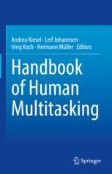Search
Search Results
-
Sing It Back: Melody and Topline Hooks
In this chapter, we analyse, in detail, the different kinds of hooks that can be found in the ‘topline’ of a pop production, which usually features a...
-
Interaction of motor practice and memory training in expressive piano performance: expanding the possibilities of improvisation
This paper aimed to investigate the influence of motor practice and music performance experiences on musicians’ auditory memory, the effect of...

-
The role of carrier spectral composition in the perception of musical pitch
Temporal envelope fluctuations of natural sounds convey critical information to speech and music processing. In particular, musical pitch perception...

-
The role of teaching solfeggio considering memory mechanisms in develo** musical memory and hearing of music school students
The purpose of this study is to investigate the role of certain mnemonic techniques in memorizing a melodic fragment by music school students. In the...

-
Absolute pitch judgments of familiar melodies generalize across timbre and octave
Most listeners can determine when a familiar recording of music has been shifted in musical key by as little as one semitone (e.g., from B to C...

-
Final-note expectancy and humor: an empirical investigation
BackgroundMelodic expectations were manipulated to investigate the nature of tonally incongruent melodic final notes that may elicit humor in...

-
Singing Ability Assessment: Development and validation of a singing test based on item response theory and a general open-source software environment for singing data
We describe the development of the Singing Ability Assessment (SAA) open-source test environment. The SAA captures and scores different aspects of...

-
Cockatiels: A Research Subject for Studying Capability for Music Production
Some cockatiels are capable of imitating human music through song, and this ability is potentially a very interesting topic for researchers studying...
-
Language-to-music transfer effects depend on the tone language: Akan vs. East Asian tone languages
Recent research suggests that speaking a tone language confers benefits in processing pitch in nonlinguistic contexts such as music. This research...

-
The melody of language learning at intermediate and upper levels: an emphasis on free discussion panels as an indispensable part of language classes and the effects on willingness to communicate, growth mindfulness, and autonomy
This qualitative study investigated the impact of discussion panels on language education, focusing on willingness to communicate (WTC), growth...
-
Can musical ability be tested online?
We sought to determine whether an objective test of musical ability could be successfully administered online. A sample of 754 participants was...

-
Sound Processing in the Auditory Periphery: Toward Speech Communication and Music Comprehension
While communicating by vocal language or sharing music, the entrance of sound is the auditory periphery. Our auditory system extracts the pitch of a...
-
Shared cognitive resources between memory and attention during sound-sequence encoding
You are on the phone, walking down a street. This daily situation calls for selective attention, allowing you to ignore surrounding irrelevant...

-
The Musical Ear Test: Norms and correlates from a large sample of Canadian undergraduates
We sought to establish norms and correlates for the Musical Ear Test (MET), an objective test of musical ability. A large sample of undergraduates at...

-
Optimizing song retention through the spacing effect
The spacing effect refers to the improvement in memory retention for materials learned in a series of sessions, as opposed to massing learning in a...

-
Music Training, Dance Training, and Multitasking
This chapter reviews the literature on task-switching and dual-task performance in music experts and nonmusicians. Fewer than 20% of randomized...
-
I still hear a melody: investigating temporal dynamics of the Speech-to-Song Illusion
The Speech–to-Song Illusion (STS) refers to a dramatic shift in our perception of short speech fragments which, when repeatedly presented, may start...

-
Generalization of novel sensorimotor associations among pianists and non-pianists: more evidence that musical training effects are constrained
In the process of acquiring musical skills, such as playing the piano, we develop sensorimotor associations between motor movements and perception of...

-
Hooks in Popular Music
This volume is the first book-length study of hooks in popular music. Hooks - those memorable musical moments for listeners such as a riff or catchy...

-
thebeat: A Python package for working with rhythms and other temporal sequences
thebeat is a Python package for working with temporal sequences and rhythms in the behavioral and cognitive sciences, as well as in bioacoustics. It...

